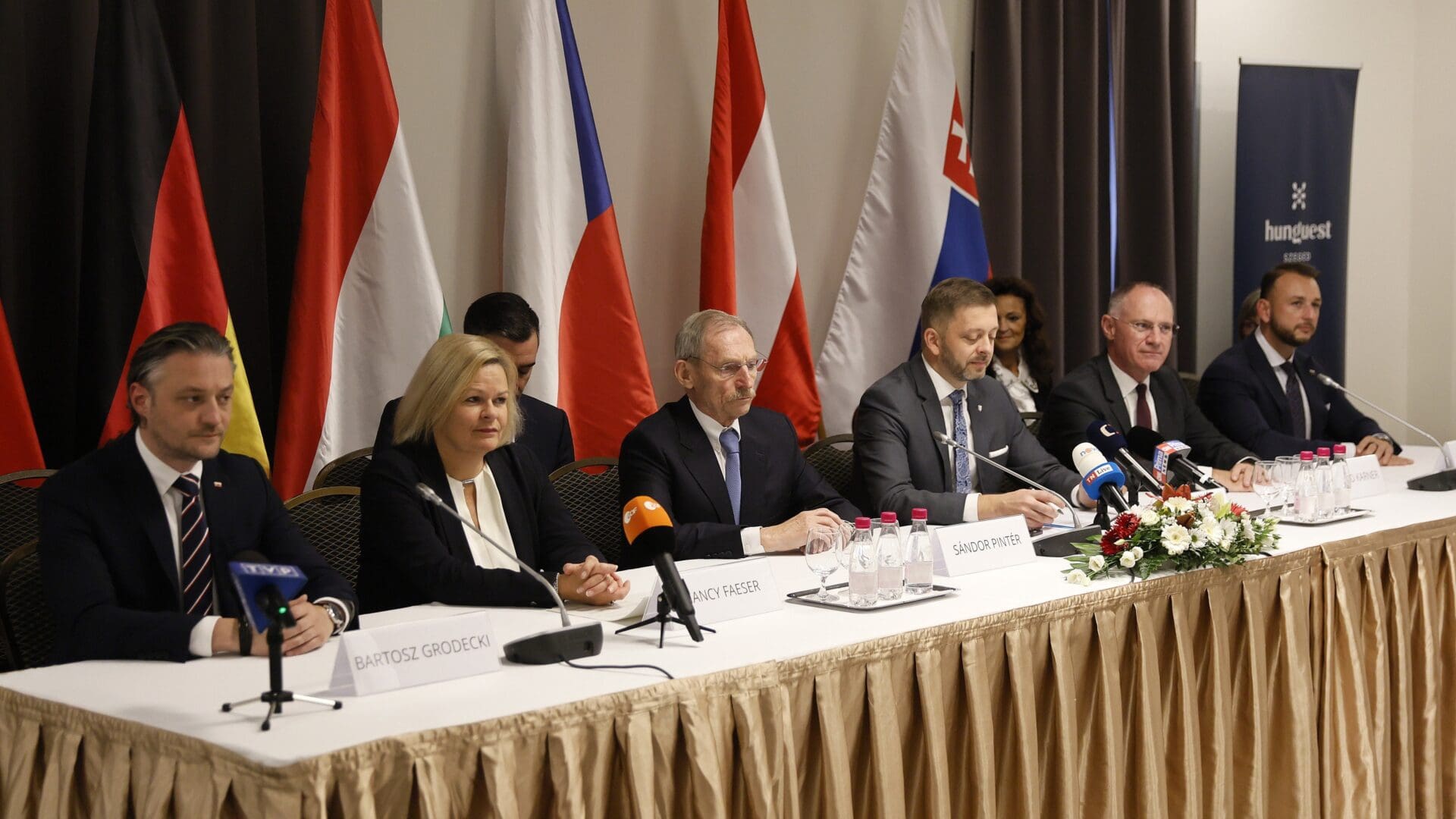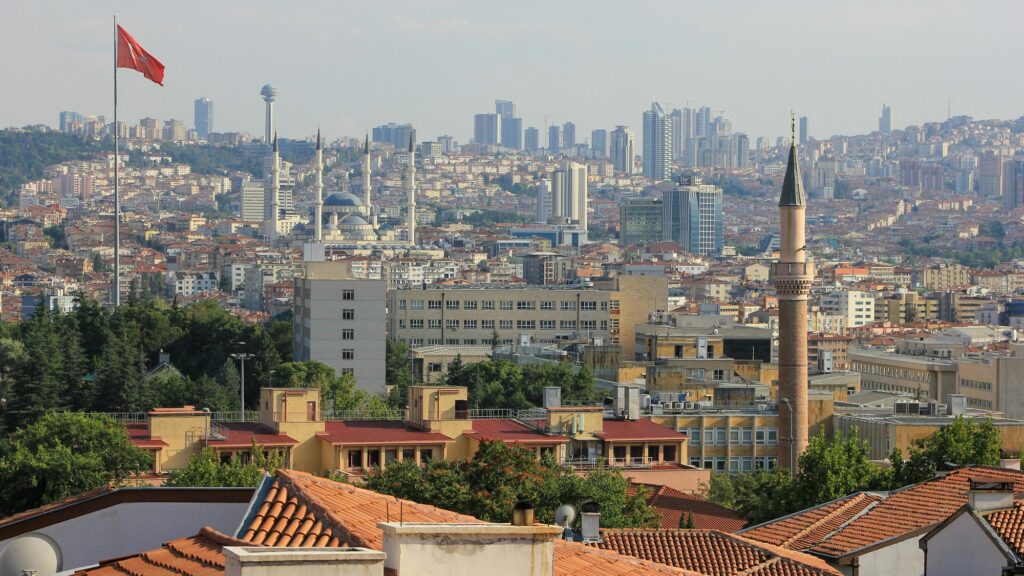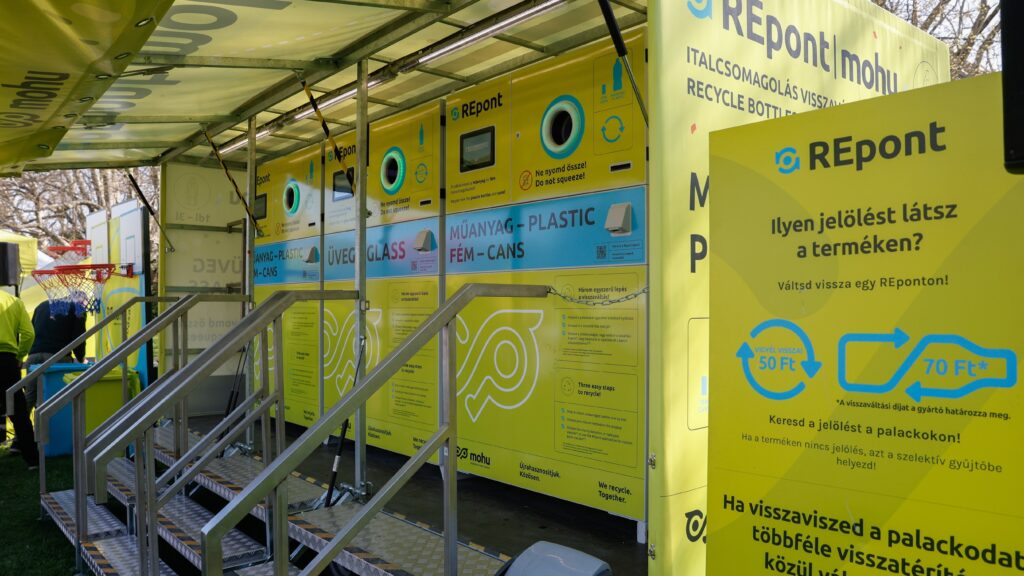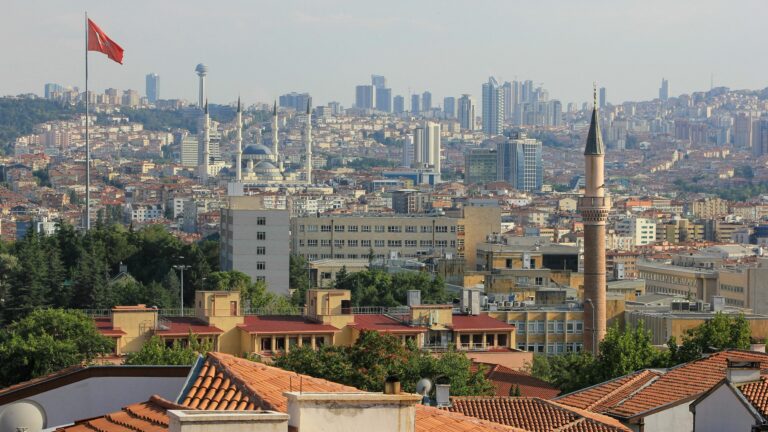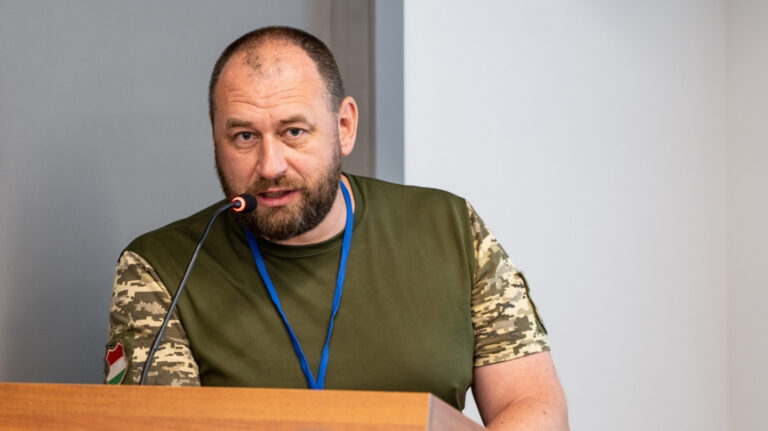Hungary safeguards not only its own public order and security but also that of other EU countries through the protection of external borders, the Hungarian Interior Minister declared in Szeged on Monday.
Sándor Pintér, during a press conference following the meeting of the Visegrád Four, Germany, and Austria’s interior ministers, stated that Hungary’s successful actions against illegal migration enable Austria, Germany, Slovakia, the Czech Republic, and Poland to maintain adequate public safety in their own countries. This, in turn, prevents the occurrence of crimes caused by ‘uninvited guests.’
The minister informed that during the meeting, he presented the efforts Hungary makes to protect its external Schengen borders, the international collaborations it has established, and its future plans. The outcomes of the legal decisions related to migration made so far were also discussed, and proposals were put forth for the creation of new legislation. Pintér emphasized his confidence in reaching a consensus, stressing that Hungary aims for this and not for a compromise. While Hungary is open to cooperation and proposals, it cannot accept the mandatory nature of relocation, considering it an infringement upon national sovereignty.
President of the Visegrád Four and Interior Minister of the Czech Republic Vít Rakušan explained that migration is a significant challenge for all countries, requiring joint action. The countries participating in the conference are situated along the same migration route, making the protection of external borders a common interest for all of them.
The cooperation with third countries continues to tackle illegal migration along the Western Balkan route continues, informed Rakušan, noting that the Czech police have been involved in border protection since 2015. The minister stated that the Czech Republic will continue this assistance until 2024. The participants of the conference agreed to hold regular meetings to assess migration processes, said the Czech minister. Rakušan stressed that internal border controls are not a good solution, and the key to the security of countries and the population lies in the protection of external borders.
He highlighted the need for a common European solution but acknowledged the difficulty in finding a compromise.
German Interior Minister Nancy Faeser remarked that several member countries have introduced internal border controls due to the strengthening of secondary migration, although every member state would prefer open borders within the European Union. She asserted the need for joint action against human smuggling and emphasized the need to strengthen the role of Frontex. Faeser also highlighted the protection of human right as the foundation of European cooperation, especially in migration policy and the protection of external borders. According to the German minister, Europe has never been closer to the introduction of a common EU asylum system, but time is pressing as the 2024 European Parliament elections approach.
Austrian Interior Minister Gerhard Karner also underscored the need for coordinated action against illegal migration and the strengthening of protection of external borders, and commended the effectiveness of the protection of the EU’s external borders as a joint effort of the Austrian, Czech, and Slovak police. He stressed the need for collaboration against human smuggling and organized crime, stating that ‘not only the small fish but also the big sharks who control the organizations need to be caught.’
Matúš Šutaj-Eštok, the Slovak Interior Minister, also emphasized the importance of cooperation, stating that Slovakia is ready to assist in the protection of other V4 nations’ external borders. He noted that the current situation is fortunate due to weather conditions and the measures of the Serbian authorities, but preparations must be made for the spring and the potential resurgence of migration pressure.
Bartosz Grodecki, the Deputy Interior Minister of Poland, argued for the importance of protecting external borders and effective, coordinated action against human smuggling and organized criminal groups. He affirmed the Schengen Zone as a fundamental value of the European Union that must be preserved.
Related articles:

